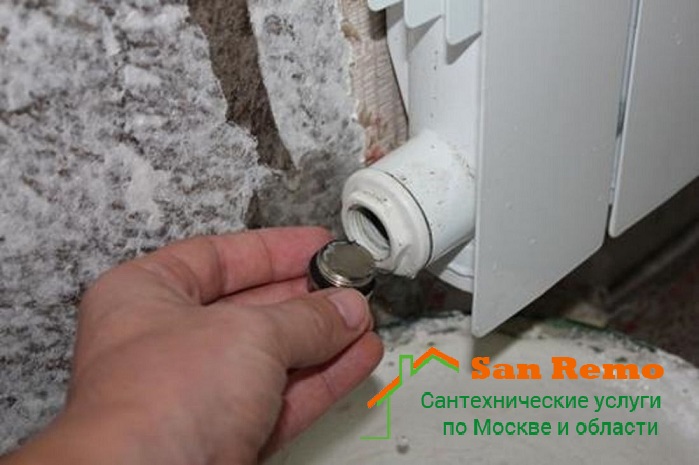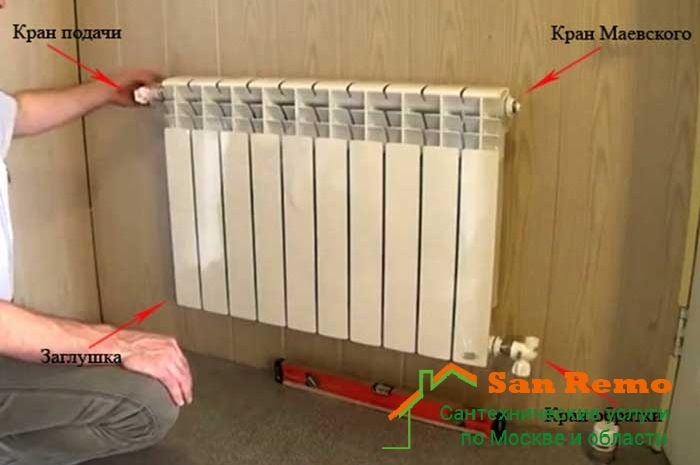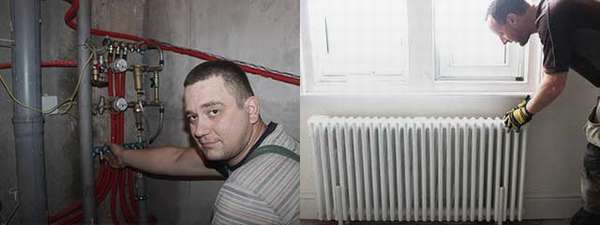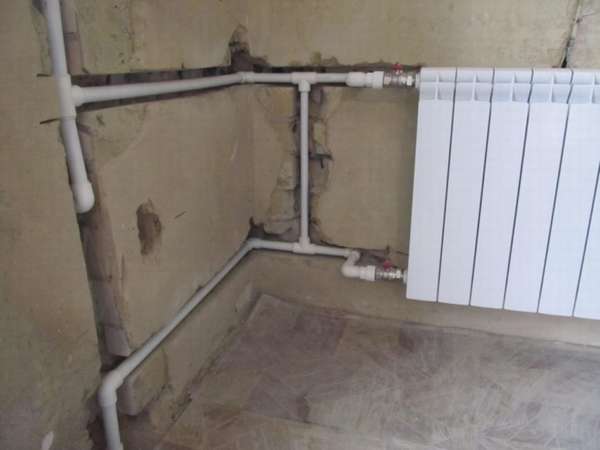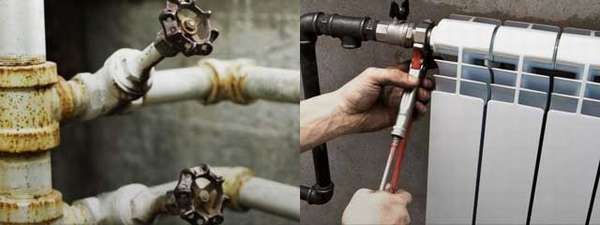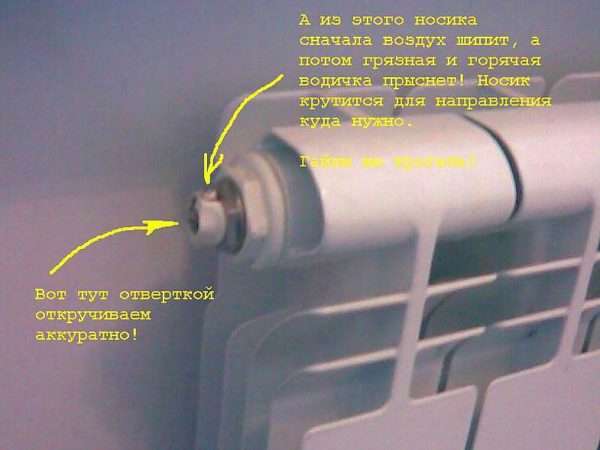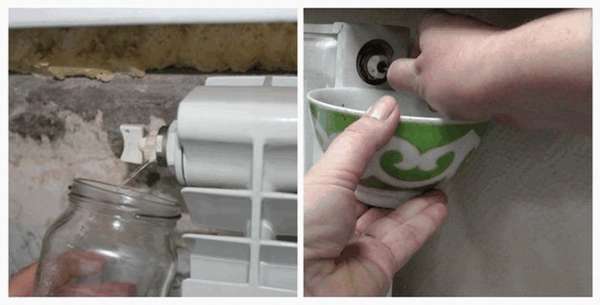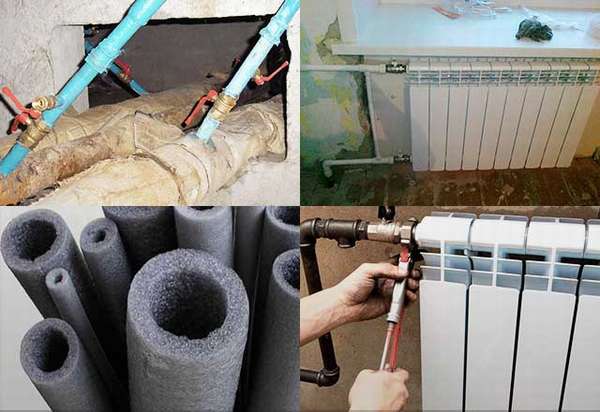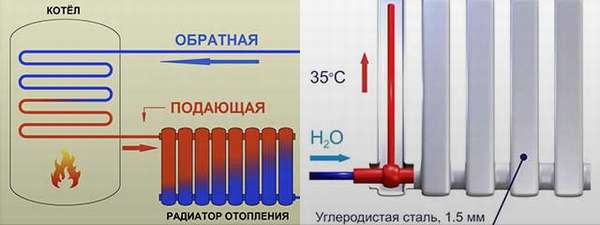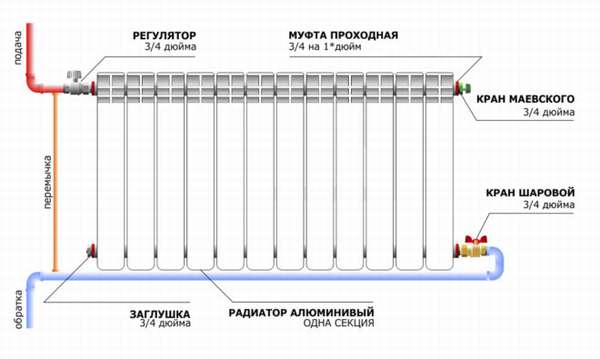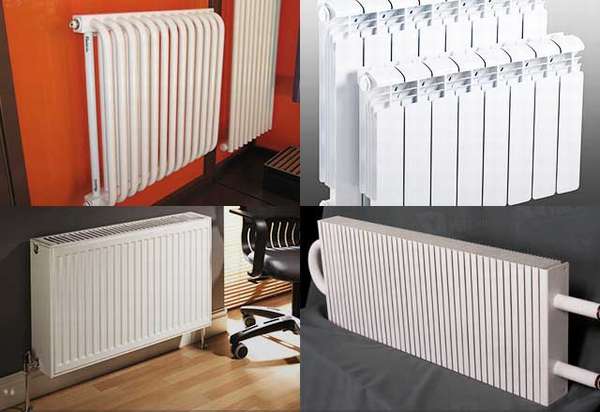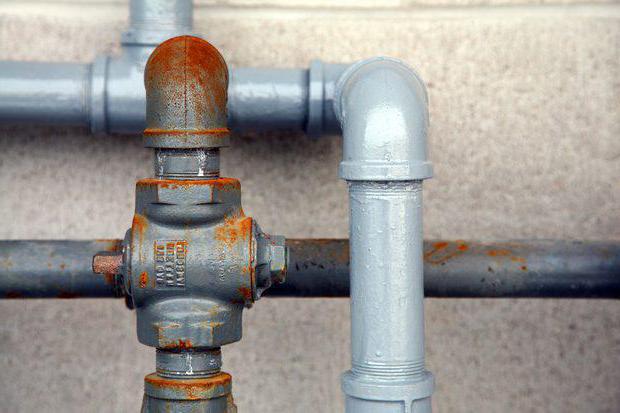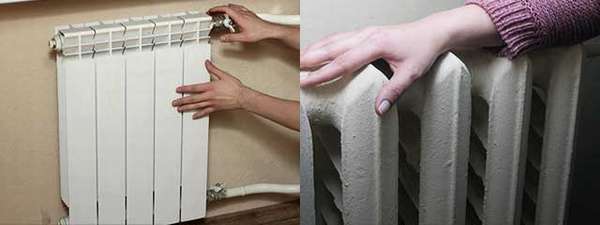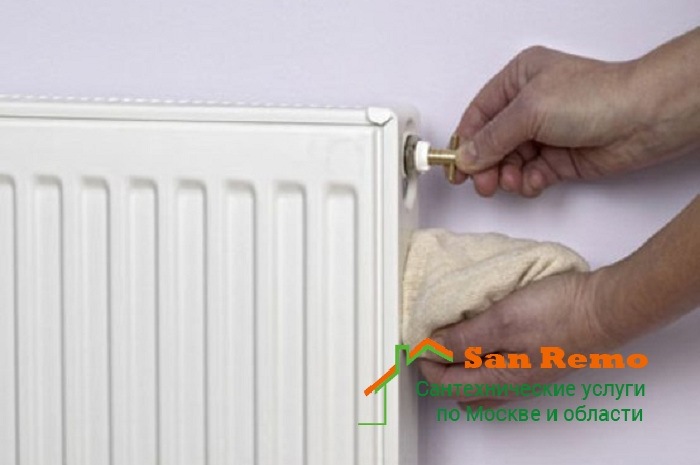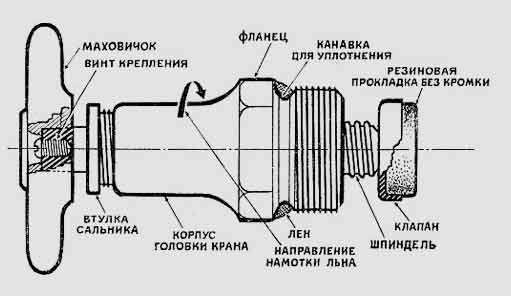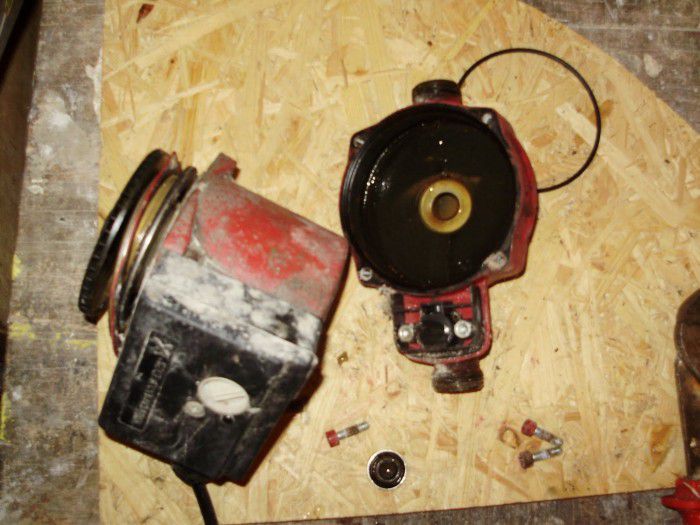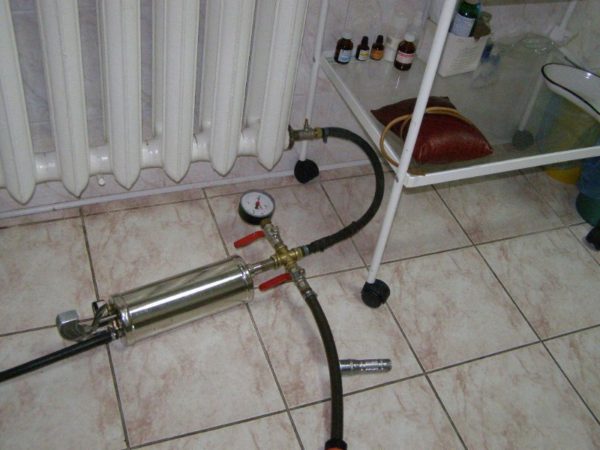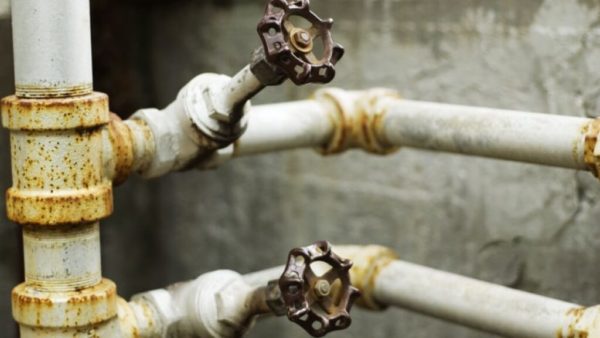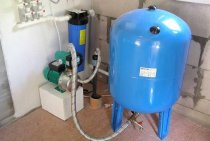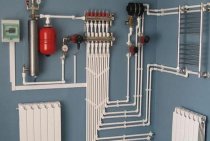Why do batteries hum
Why the water is noisy in the batteries of multi-storey buildings or private households, emitting a hum, whistle or a constant buzz, no one will definitely tell you either. There are many reasons, but let's look at the main ones.
If the hydraulics in the house are not properly balanced, annoying sounds can occur. All houses that are connected to the central heating main are connected to each other. For the normal distribution of the coolant, balancing valves of different diameters are selected and throttling nuts are installed at the entrance to each house.
When the craftsmen select the wrong nut or adjust the valve incorrectly, the coolant does not reach the last floors and runs through the pipes very quickly. Accelerated circulation causes sounds similar to the hum coming from the batteries. Why else can the water in the radiators make noise, read on.
When repair work is carried out on the technical floor of an apartment building, problems can arise. The hum can be caused by an increased number of pipe transitions without hydraulic balancing or by using smaller diameter pipes. The solution in this case is to call a plumber, who should solve the issue at a professional level. Each case is individual, but most often the situation is solved by installing a new balancing valve in front of the risers.
If you don’t know why water makes noise in the batteries, you may be the reason. For example, you tried to adjust the coolant inlet to the apartment yourself with a balancing valve. This should be done by experts. To correct the situation, you need to change the adjustment or call a wizard who will quickly cope with the task.
Types of extraneous sounds in the heating pipeline
Under the influence of various factors, noise can appear not only in batteries, but also in heating pipes. At the same time, both metal and metal-plastic pipes can sound equally unpleasant.
Extraneous sounds in the heating pipeline may appear:
- Bubbling.
- rattling.
- Crack.
- Clicks.
- Gurgling.
- Buzz.
- Howl.
- Whistle.
- Knock.
Often, such noises indicate serious problems in the heating system that require timely diagnosis and elimination.
Trumpets howl and hum
The most common type of noise is when pipes suddenly begin to hum, especially at night. The probable cause of the buzz and howl is a coolant leak. To identify the source of the leak, each apartment is carefully checked along the riser, as well as the basement. In a private house - any room in which a heating radiator and a boiler room are installed.
If a malfunction is detected in the operation of the system in an apartment building, residents have the right to complain to the management company or condominiums for repair work. In a private house, the repair of the system is carried out at the expense of the owner of the housing.
Another reason for the hum may be the different diameters of the pipes that were used to organize the pipeline. In such a case, the problem area is replaced by a larger diameter pipe.
Clicking, crackling and bubbling in pipes
In most cases, clogging with small particles of debris or sludge leads to crackling and clicking in the pipes. A characteristic sign of clogging is also a dull click.
In order for the pipeline to stop clicking, a high-quality flushing of the system is carried out. To do this, the coolant is completely drained through the flow valve into the sewer, and the pipeline and the heating circuit are washed with clean water.
An equally serious cause of crackling and clicking is a broken valve or improper installation. The easiest solution is to install a new device. To prevent such a problem in the future, it is recommended to use ball valves, which are characterized by increased strength and resistance to blockages.
Trumpets murmur and whistle
Often, in the presence of air jams, pipes whistle, and the coolant in the system begins to characteristically murmur. Air can enter the heating circuit and pipes during repairs through leaky fittings. In addition to constantly murmuring water, there may be insufficient heating of the heating equipment to maintain the optimum temperature in the room.
The problem is solved by draining excess air from the heating system through the Mayevsky tap. The hot coolant is supplied under high pressure, so the water is collected in the prepared container in small portions.
Pipes rattle and rattle
The reason for knocking in the heating system may be insufficient fixation of fasteners for pipes or radiators. The passage of the coolant through the system can cause even small vibrations that lead to rattling and knocking. The problem is solved by providing rigid fixation of supports for all elements of the system in each separate room.
Sometimes pipes rattle and knock if they are located close to each other. The thermal expansion of the metal leads to friction of surfaces that are capable of making unpleasant sounds. To eliminate knocking, it is enough to soundproof the problem area of \u200b\u200bthe pipe.
Other sources of extraneous sounds in the heating pipeline
In addition to violating the installation technology of the heating system, the horizontal pipeline and riser are noisy for the following reasons:
- Hydraulic shocks.
- Low quality coolant.
- Noisy operation of pumping equipment.
- Wear or deformation of individual elements of the system.
- Violation of tightness and patency.
Professional diagnostics will be required to identify significant problems.
Having dealt with the reasons why radiators make noise in a multi-storey and private house, you can apply simple and effective ways to eliminate them. For example, reduce the pressure in the system, remove air pockets, replace pipes of the required diameter or a thermal valve. Difficult cases require an integrated approach to diagnosis and problem solving by experienced specialists.
The principle of operation of heating batteries
Residents of apartment buildings rarely think about how modern batteries work. And only with the advent of specific sounds signaling problems in the heating system, the issue becomes relevant.
The principle of operation of the radiator is as follows:
- The heating circuit is filled with a coolant - water.
- The coolant moves through the system, provides heating of all its structural elements.
- The heating radiator easily accumulates thermal energy, which it gives into the room.
- The cooled coolant is returned to the common riser and the heating cycle is repeated.
The movement of the coolant starts from the common boiler room or autonomous heating equipment (boiler) through the pipeline to the radiators.
It is not surprising that in a certain area the movement of the coolant may be accompanied by unpleasant noise and hum.
Modern batteries for heating are represented by the following designs:
- tubular radiators.
- sectional radiators.
- panel convectors.
- Plate radiators.
How to solve noise problems
It often happens that the heater is clogged from the inside. In this case, pieces of slag will move along the radiator along with the flow of water, hitting the walls.
In this case, washing will help. A hose is put on the faucet, and the water, along with the debris, gradually drains.
Video:
If the procedure does not help, at the end of the heating season, the radiator will have to be dismantled, disassembled and cleaned, or replaced.
An airlock in a heating device is a common cause of unpleasant gurgling sounds.
This problem is solved with the help of the Mayevsky crane, which will allow the air to be released and the battery to continue to work silently.
Quite often, at the beginning of the heating season, problems with noise in pipes can arise due to pressure that has not been equalized to the end.
When the pressure difference in the pipeline exceeds 1.5 atmospheres, tapping may begin.
In this case, the specialist must install a washer in front of the regulator nozzle, which will equalize the pressure.
In an apartment building, a circulation pump is responsible for the movement of warm water through pipes and heating devices in apartments.
If for some reason it starts to work incorrectly, then specialists should determine the solution: it may cost to install a special valve that will correct the operation of the pump, or it may go as far as replacing the unit.
If the cause of the noise is identified in the place where the heating battery joins the bracket, then you should think about replacing the brackets or choose an easier way - put a rubber lining between the battery and the fastener to prevent friction.
Leaks can be identified by yourself. To do this, it is enough to inspect the pipes in your apartment or house. If one can be seen with the naked eye, then this is good luck, and you can immediately take measures to eliminate it.
Having found out that everything is normal in the apartment, you need to go around the neighbors in order to search for a pipe from which water is leaking.
Video:
If the neighbors also did not find a leaking pipe, then it is necessary to inspect the main node of the heating system.
In an apartment building, it is located in the basement, going down into which you can immediately come across steam - it is he who signals the place of the breakthrough.
In this case, the emergency service is called immediately.
As it turned out, there are various causes of unpleasant sounds coming from radiators. But it will be easier to find out the reason now.
In most cases, it is better to solve the problem of eliminating noise according to the opinion of experts, because they are guaranteed to have experience, knowledge, special tools and spare parts.
The main thing is not to hesitate, because this will help to avoid emergencies in the future.
Methods for finding a faulty crane
To identify an apartment with faulty taps, it is necessary to turn them off one by one from hot and cold water pipes and listen to whether the unpleasant sound has disappeared or not. As soon as the rumble in the pipes stopped, an apartment with faulty plumbing was found.
If you checked each of the apartments in the house as described above, but the problem has not been resolved, it is likely that the sound is caused by the gasket of the valve that blocks the riser. You can test this hypothesis by turning off the taps that supply water to this riser. If the sound is gone, then the problem is with the riser valve.
Remember also that if you have a branched water supply system in your basement, containing a lot of valves and valves, any shutoff valves can cause buzzing. Determining the cause of unpleasant sounds without an experienced plumber in this case can be very difficult and not as soon as we would like.
If you still managed to localize the cause, consider yourself lucky. With a simple repair, it can be easily eliminated.
Causes of Noise in Batteries
To determine the reasons why the batteries are noisy, it is recommended to check the external condition of the devices. In the absence of visual defects and damage to the case, it is necessary to determine the type of extraneous sounds. Often, the sound effect is created in cases where water hisses and makes noise, as well as clogged pipes click and buzz, or the radiator housing knocks. The following factors influence this:
- Water pipe diameter mismatch. Often the heating system consists of pipes of different diameters, which can cause an unpleasant knock and noise in the battery when the coolant moves. The problem is solved by replacing pipes of the same diameter.
- Pressure surges within the system. To reduce the pressure limit in an apartment building, a special washer is mounted in front of the inlet pipe of the elevator or a pressure regulator is installed.
- The appearance of air pockets in the pipeline and heating appliances. This leads to the fact that the coolant gurgles in the batteries. Residents of a multi-storey or private house can hear a similar sound with the beginning of the heating season when the system is filled with hot coolant. The elimination of traffic jams is carried out by draining the water with a Mayevsky tap.
- Incorrect thermostat setting. Sometimes noise in radiators can appear as a result of incorrect connection of the thermostatic valve. In some cases, batteries crackle when thermostats are installed and not adjusted by neighbors in the riser. To solve the problem, it is enough to check the correct installation and adjustment of the valve in your own and neighboring homes.
- Displacement of the heating battery. When the coolant is heated, the heating circuit may expand, which leads to involuntary friction of the surfaces. If the heating battery clicks, this problem can be eliminated by installing a rubber gasket between the fixing elements and the batteries.
- Modern multi-storey and private houses are equipped with a circulation pump, the vibration of which reaches the heating circuit. To reduce the noise of the pump, it is recommended to install a special inlet valve on the elevator.
- Blockages in the heating circuit. If the battery crackles and hisses, this may be due to the ingress of small particles of debris with the coolant into the system when the heating main breaks. To remove the unpleasant consequences of blockages, a complete flushing of the heating system is required.
- Sharp temperature changes during heating of the coolant. If the heating circuit is filled with hot coolant and then cool, a characteristic sound may occur due to the fact that the battery case clicks. This occurs as a result of thermal expansion of the metal.
How to remove the murmur and noise of water in batteries
What to do when the noise from the batteries is like murmuring and gurgling? There is only one answer in this case - it is an airlock. Air entering the system in different ways causes unpleasant sounds that annoy the owners of an apartment or a private house. Reasons for this include:
- incorrect filling of the heating system with water initially;
- broken tightness of the pipeline;
- filling the system with untreated water.
In each case, the solution is to bleed the air - the system must be de-aired. For this, there are Mayevsky taps that open with a screwdriver or a special key. First, air comes out of the hole, then bubbles. It is necessary to wait for a smooth stream without interruptions - in this case there is no air in the system.
Noises in the heating pipe
There are also two reasons for noise in the heating pipe - this is a narrowing of the pipe, turning into an obstacle in the path of water flow, and a leak in the heating system. It is clear that it is not difficult to detect a leak. But the first reason will have to tinker. It is logical that the narrowing in the riser of the heating system will turn out for you a lower radiator temperature than that of your neighbors. An obstruction to the flow of hot water can be a screw valve with a faulty valve, a half-open valve, or a piece of scale or slag that has stuck somewhere across the pipe. It is easy to deal with a half-open valve with your own hands, but the rest of the points require the intervention of the management company.
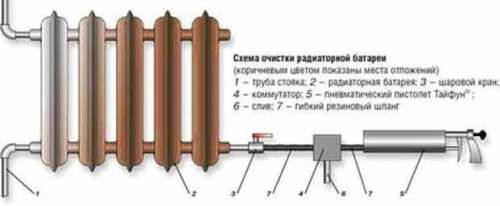
Noises in the heating system in the form of knocks can also occur in radiators.There are already three reasons for this - thermal expansion at a variable temperature of the radiator, a broken valve valve or small particles in the water stream.
I found the source of the noise in the heating pipes!
Let's start small, with the smallest particles of slag, which, by tapping on the pipe walls, create extraneous noise. You can try to remove them by flushing the heating system. If there is a flush tap, you can do it yourself, if not, then it is better to call a plumber.
A broken valve is a common problem with all helical valves. Moreover, a damaged valve can completely block the flow of hot water, leaving some apartments without heat. And in the best case, with a slight misalignment, it can randomly change its position, causing chatter, and from time to time block the pipe clearance, thereby causing water hammer. In these cases, the management company must immediately repair the heating system by replacing the damaged valve.
screw valve
The neighbor doesn't know...
And finally, the third reason why the pipes in the heating system are buzzing is from a knock in the radiator, which is fixed on steel supports and is usually located under the window, which we often open to ventilate the room. Opened - the temperature of the radiator has decreased. Closed - increased again.
So, at the slightest movement of the device, as a result of slow expansion-compression of the metal, creaks will occur, similar to rare tapping. To eliminate them, it will be enough to lay a fluoroplastic plate between the steel support and the contact surfaces of the heating radiator.
I want to remind you that the noise in water supply and heating systems is only a part of the tones in the polyphonic sound palette of the pipe “symphony”, but we have considered the main ones.
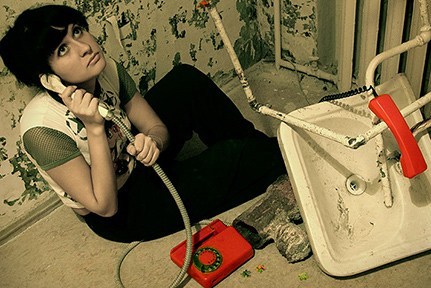
On this hopefully optimistic note, I want to end this article on the repair of heating and plumbing systems. I think that after that everyone can figure out why the pipes are buzzing and fix the problem with their golden hands, or with the hands of management companies. Finally, I have a question for you: “Do the neighbors from above bother you with their noise?”. Why did I ask? Just in the next article, we will look at how to protect yourself from noise from the top.
Noise from heating pumps
Constant noise in the heating pump may appear due to a partial breakdown of its components - the impeller or rotor. At the same time, the functioning of the entire system deteriorates, which leads to a decrease in the efficiency of its work. To eliminate this cause, the pump should be repaired or a new one installed.
Also, constant noise in the circulation pump can be caused by its unstable operation. voltage drops lead to a loss of synchronization and, as a result, uneven movement of the coolant. This can cause noise in the heating system in other areas - in pipes and radiators. You can check the operation of the pump only after a complete diagnosis. It is impossible to perform it at home without special equipment.
In addition, noise effects in the riser or other areas of the heat supply may occur due to a malfunction of the pump for the following reasons:
-
Incorrect mounting
. The rotor of the device must be strictly horizontal; -
Discrepancy between the power of the equipment and the calculated data
. This leads to a significant increase in the flow rate of the coolant through the mains. The only way out is to install a pump of the appropriate power.
In practice, it is extremely difficult to diagnose noise in a heating circulation pump. To do this, it is necessary to dismantle it and disassemble the structure. This can only be done with special skills and diagnostic tools. Therefore, this work is best entrusted to professional repairmen.
And the neighbors are noisy too
It often happens that not only you and your family endure this. Therefore, you first need to bypass the neighbors in the riser to identify the location of the noise.
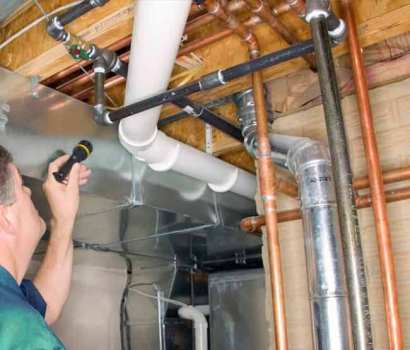
Now, as for the nature of the buzz. Heating pipes, however, as well as water pipes, can exude single or rhythmic sounds, something like tap dancing, rustling, gurgling, or even vibrate and even buzz - periodically or constantly. The reasons can be completely different, they are even classified into groups. But now we will not consider absolutely all of them, but will focus only on the sound effects of a percussive nature.
Note: The likelihood of pipe noise is dramatically reduced if metal-plastic or plastic pipes are used instead of metal and copper pipes. This is explained by the high sensitivity of steel pipes to low-frequency vibrations and high rigidity. Although their material is much stronger. As shutoff valves, it is recommended to use not screw, but ball valves, which are controlled by turning the handle. These are heavy cast copper products, not Chinese-made light alloy products.
How to avoid noise
Before doing any repair work, it is important to turn off the gas. If you suddenly feel that you smell of gas, immediately turn off the tap at the entrance to the house, turn off electrical appliances, ventilate and call the gas service
When installing, it is possible to install an elastic vibration-absorbing layer under the body in all places where the boiler comes into contact with the wall.
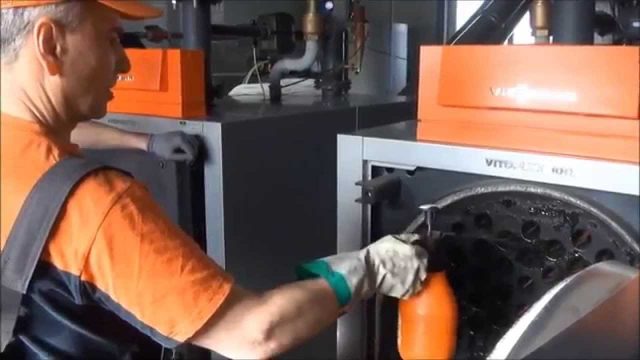
First of all, it is important to carry out regular maintenance of heating equipment, which includes cleaning the components, removing dust and lubricating some elements. This will increase the life of your boiler and eliminate noise before it occurs.
In a closed system, water must be added from time to time, following the pressure gauge reading. In some devices, for example, Wisman Vitopend, it is displayed on the control panel at the bottom of the case.
Let's figure out what to do when the device is already making extraneous sounds:
If the cause is oxygen saturation of the water, the problem can be solved by converting the open system to a closed one. To do this, air vents are mounted on the water-heating boiler and the expansion tank is replaced with a membrane one. Check and clean the fan
It is important to note that the main blades are located inside the body under the casing. After cleaning the dust and dirt, additionally lubricate its bearings
If this does not help, the cooler needs to be replaced. When the heat exchanger howls, you need to clean the scale inside it. In order to remove it, the casing is removed and the pipes connected to it are unscrewed. It is best to pour inside a special chemical anti-scale agent, which is sold in hardware stores, and leave it for several hours. If it is too difficult to remove the heat exchanger, the agent is poured inside using a flexible hose. If the gas valve whistles, you need to check its settings. The correct configuration is written in the instruction manual. When the power of the pump exceeds the demand of the system, it is necessary to reduce its speed by changing the position of the white switch under the cover on the terminal block. The air from the heating system is vented through a brass air outlet on the front panel of the machine. If there is popping on ignition on semi-automatic models with piezo ignition, such as the Bosch W, clean the nozzle and the pilot burner tube, which is ignited by the starter, from dust and blockage. When an automatic boiler, such as Ariston Genius, turns on with the strongest bang, the ignition electrodes should be cleaned and, if necessary, corrected in their location. After that, the ignition will pass quietly.Noise from the valves can be prevented by replacing them with ball valves or by adding an additional rubber gasket. To get rid of the fact that the gas meter clicks, you need to call the gas service to check, as it is on it. Most likely, you will have to replace the device. In order to remove the metallic knock when the temperature of the radiators changes, you should rearrange the wall mounts to the places that coincide with the points of their support. It also solves the problem of putting rubber gaskets on the brackets. When the heating pipes built into the wall ring, it is necessary to lay a special insulating material Meron around them. It is advisable to consider this at the time of installation, so as not to spoil the repair later.
If it is difficult to localize the sound, let the boiler work in different modes. For example, if you have a dual-circuit device, such as Atlas Ferroli, and you don’t understand what and why is buzzing, turn off the DHW. Next, note at what time period an extraneous sound appears when the boiler is just starting up or at high temperatures, after it overheats.
Batteries murmur
The reason why the radiators in a private house or apartment began to murmur is the unevenness of the pipes and the different cross-sectional diameters. This is due to the fact that water circulating along irregularities and bends meets obstacles and flows around them. Violation of the fluid permeability index provokes the occurrence of murmur.
Cleaning and flushing batteries
In this case, in order to understand why the heating radiators are noisy, it is necessary to get rid of the blockage and check whether the valves are closed and not damaged. If everything is in order with them, use two methods:
- Cleaning with strong water pressure.
- With the help of special chemicals that corrode the garbage. Then it is washed out in the first way.
In cases where the blockage has occurred in large quantities and formed a plug, the help of a welder may be required to clear debris. Advice. When designing valves, consider the possibility of debris and discard the valve option. Use only ball valves. They are much easier to operate and have good wear resistance.
The increased degree of deterioration of the heating pipes in the apartment also contributes to the appearance of extraneous sounds in the heating system. Check it annually. If it was found out that the sound comes from the heating radiator, it is necessary to check its condition, and it is better to entrust its replacement to a specialist.
